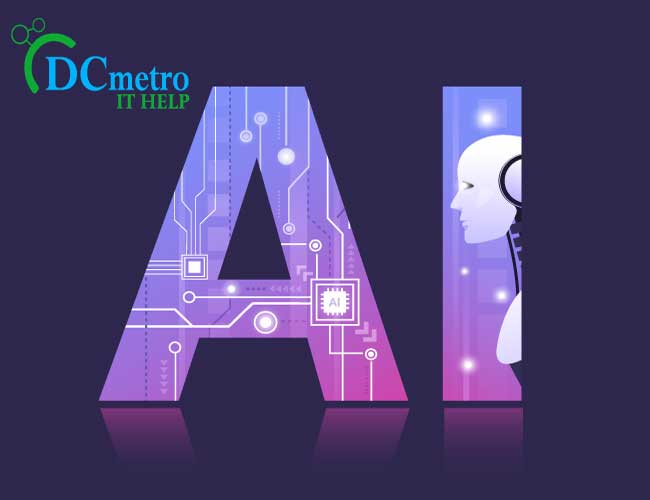Artificial Intelligence, commonly referred to as AI, has become one of the most transformative technologies of the 21st century. It is the simulation of human intelligence processes by machines, allowing them to perform tasks that typically require human intelligence, such as learning, problem-solving, perception, and decision-making. Since its inception, AI has witnessed rapid growth, revolutionizing various industries and promising to reshape our world in ways that were once considered mere science fiction.
The Evolution of AI: From Fantasy to Reality
The concept of AI has been around for centuries, often depicted in myths, folklore, and ancient stories. However, it was in the 20th century that AI started taking concrete shape. In 1956, the Dartmouth Conference marked the birth of AI as an academic discipline. The early years saw ambitious claims and expectations that couldn’t be met due to limited computing power and data availability.
The AI winter followed, characterized by reduced funding and disillusionment, as the technology didn’t live up to its initial hype. However, in the 21st century, AI experienced a resurgence, thanks to advancements in computational capabilities, the emergence of big data, and breakthroughs in machine learning algorithms.
Machine Learning: The Driving Force Behind AI’s Rise
Machine learning, a subset of AI, is the backbone of modern AI systems. It enables machines to learn from experience, identify patterns in data, and make predictions or decisions without explicit programming. Supervised learning, unsupervised learning, and reinforcement learning are some of the popular techniques used in machine learning.
The availability of vast amounts of data and the ability to process it at unprecedented speeds have allowed machine learning algorithms to achieve remarkable accuracy and efficiency. From image and speech recognition to recommendation systems and natural language processing, machine learning has become an indispensable tool across industries.
AI in Everyday Life
AI has seamlessly integrated into our daily lives, often without us realizing it. Social media platforms use AI algorithms to curate personalized news feeds and recommend content. Virtual assistants like Siri, Alexa, and Google Assistant rely on AI to understand and respond to voice commands. Online shopping websites utilize AI-driven recommendation systems to suggest products tailored to our preferences.
In the healthcare sector, AI aids in disease diagnosis, drug discovery, and personalized treatment plans. It can analyze medical images, predict patient outcomes, and assist in surgical procedures, thereby improving patient care and saving lives.
AI has also played a crucial role in autonomous vehicles, making significant strides in self-driving cars. Through complex sensor systems and AI algorithms, these vehicles can navigate roads, detect obstacles, and respond to traffic conditions, offering the promise of safer and more efficient transportation in the future.
AI and the Job Market
As AI technologies advance, there are concerns about its impact on the job market. Some fear that AI will lead to widespread unemployment as machines replace human workers in various industries. While AI automation may indeed disrupt certain job sectors, history shows that technological advancements have often created more jobs than they’ve eliminated.
AI has the potential to augment human capabilities and create new opportunities in specialized AI-related fields such as data science, machine learning engineering, and AI ethics. Moreover, as AI takes over repetitive and mundane tasks, it frees up human workers to focus on creative, strategic, and emotionally intelligent tasks that machines cannot replicate.
Ethical Considerations and Challenges
While AI brings numerous benefits, it also raises ethical concerns and challenges. One major concern is bias in AI algorithms, which can perpetuate social inequalities if left unchecked. Biased data can lead to discriminatory decision-making, impacting areas like hiring practices, criminal justice, and loan approvals.
Another significant challenge is ensuring the safety and security of AI systems. Autonomous systems must be reliable, transparent, and protected from malicious attacks that could have severe consequences. Striking a balance between innovation and regulation is essential to harnessing AI’s potential without compromising privacy and security.
Looking Ahead: The Future of AI
The future of AI holds tremendous promise and potential. As AI continues to evolve, we can expect even more sophisticated applications in areas like robotics, healthcare, education, and environmental sustainability. AI-driven innovations may revolutionize drug development, tackle climate change, and enhance personalized learning experiences.
However, as AI becomes more ubiquitous, it is crucial for policymakers, researchers, and industry leaders to work together to establish ethical guidelines, privacy regulations, and standards for AI development and deployment. Ensuring that AI serves the greater good and aligns with human values will be paramount in shaping a future where AI benefits all of humanity.
In conclusion, AI stands at the forefront of technological progress, revolutionizing industries and reshaping society in ways previously unimaginable. Its potential to drive innovation, improve efficiency, and solve complex problems makes it a cornerstone of the future. However, addressing ethical challenges and ensuring responsible development will be key to maximizing the benefits of AI while mitigating its risks. With responsible stewardship, AI will continue to propel humanity towards a brighter and more intelligent future.



Leave a Reply